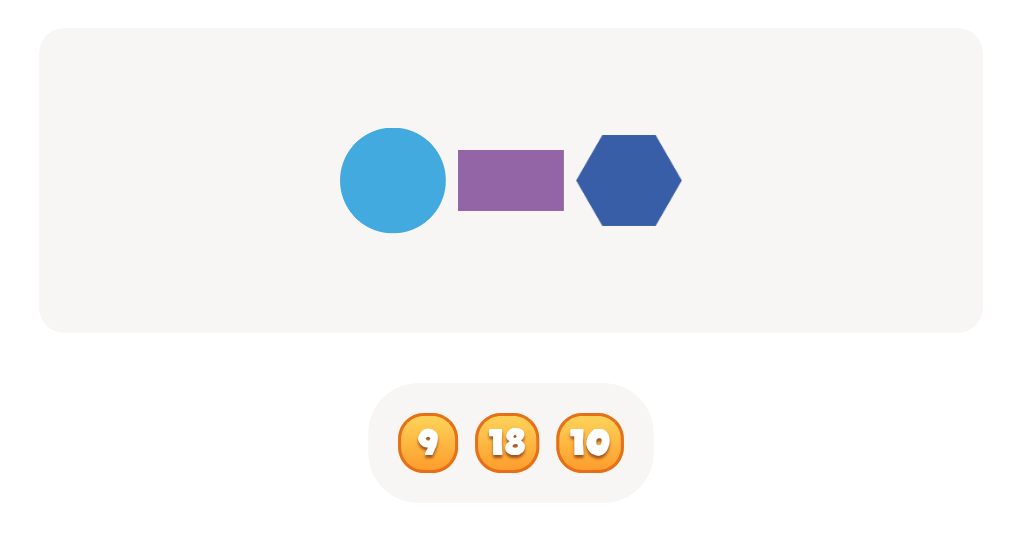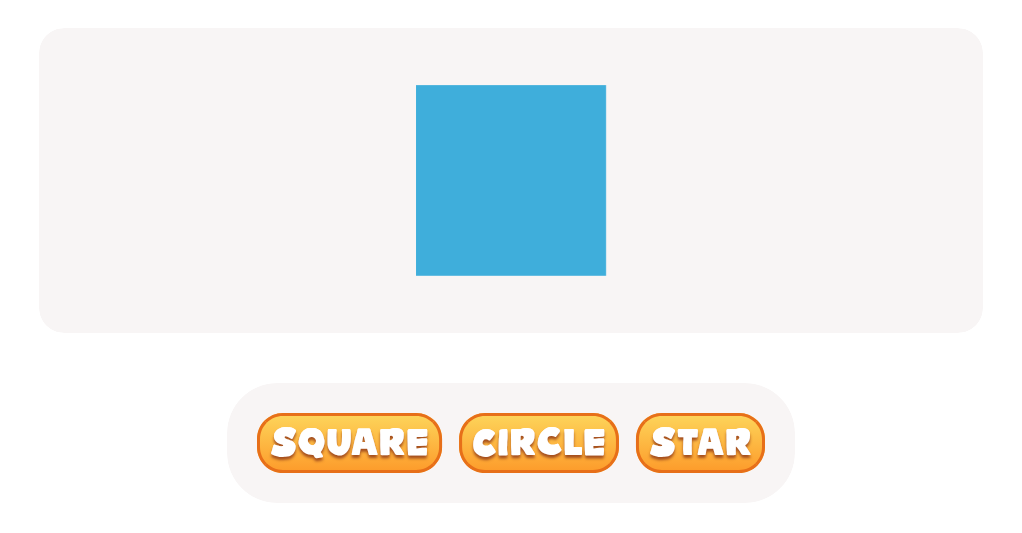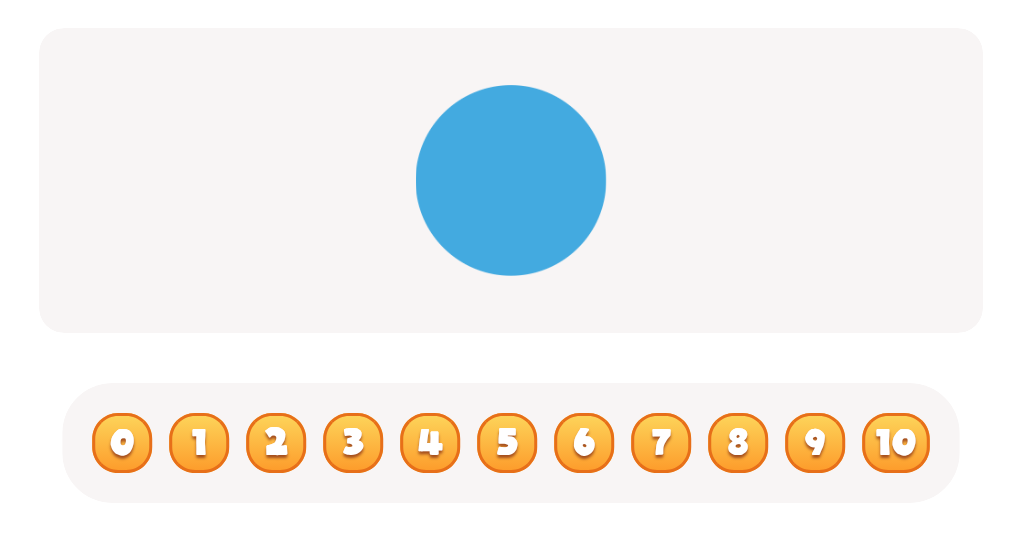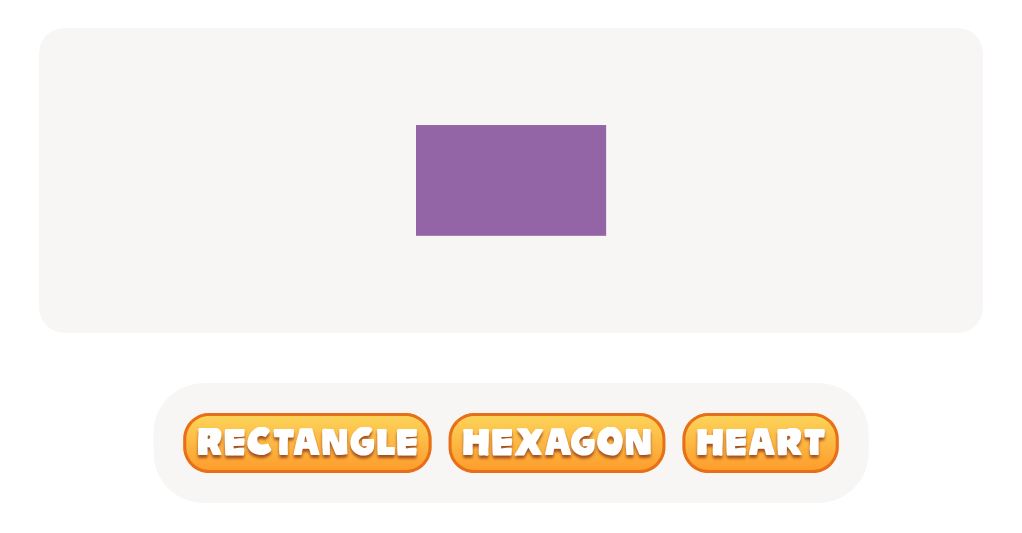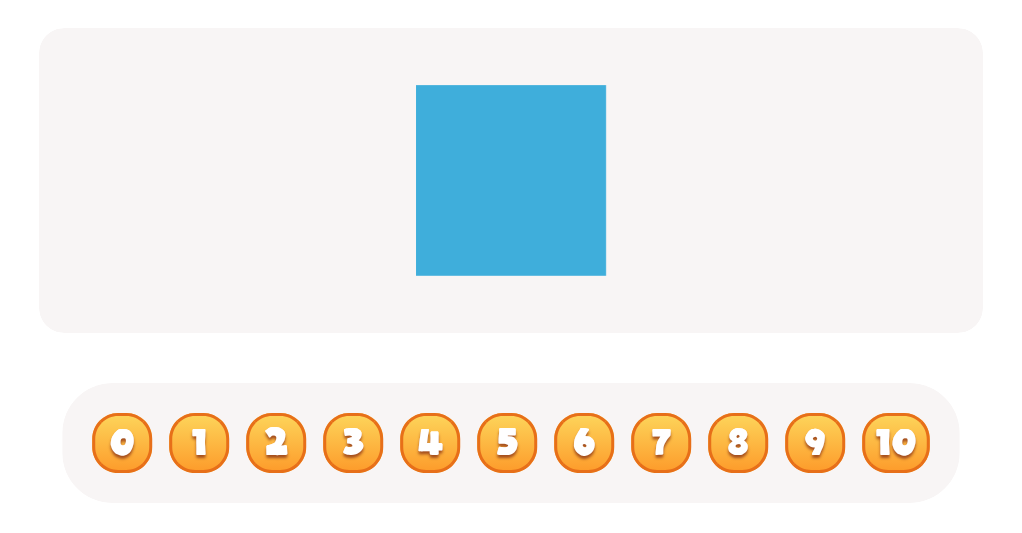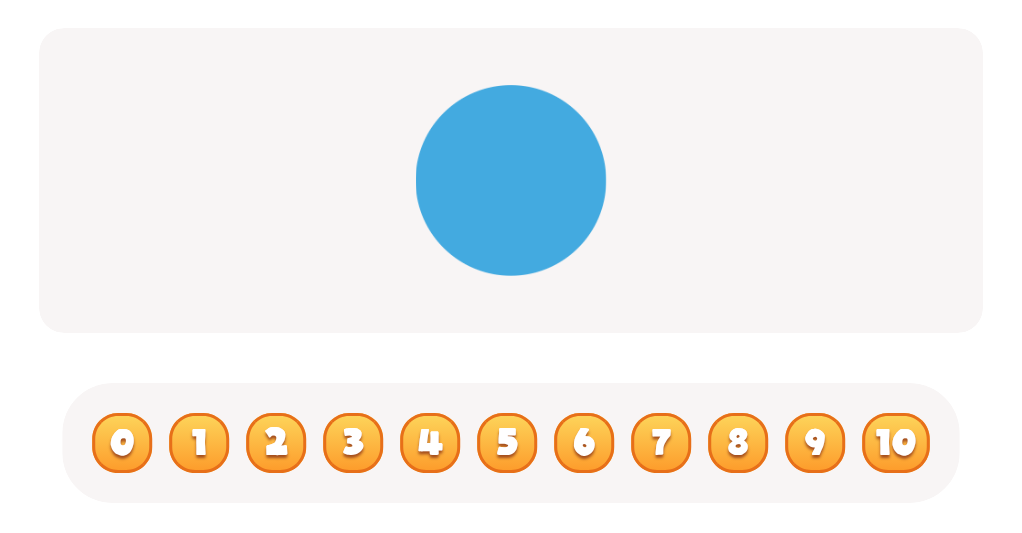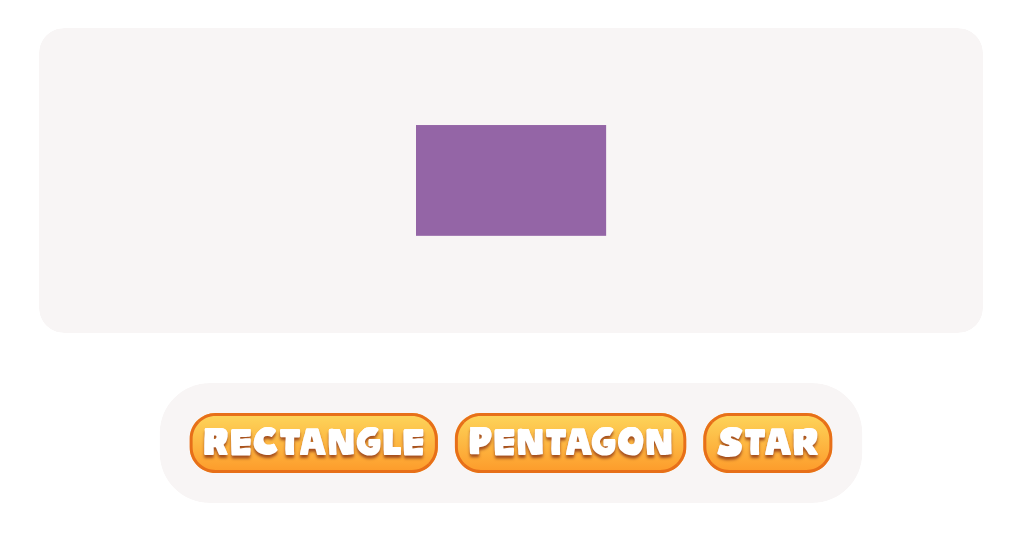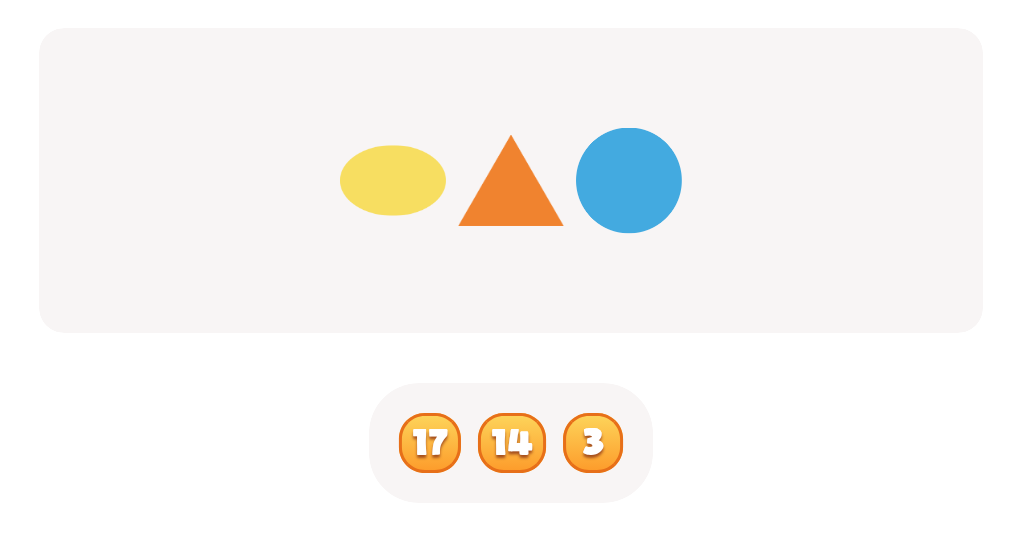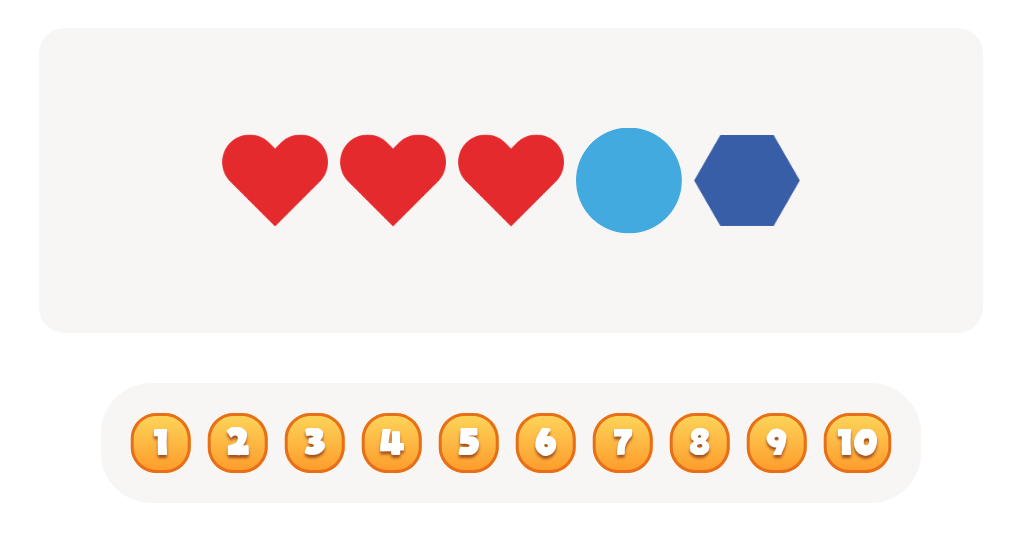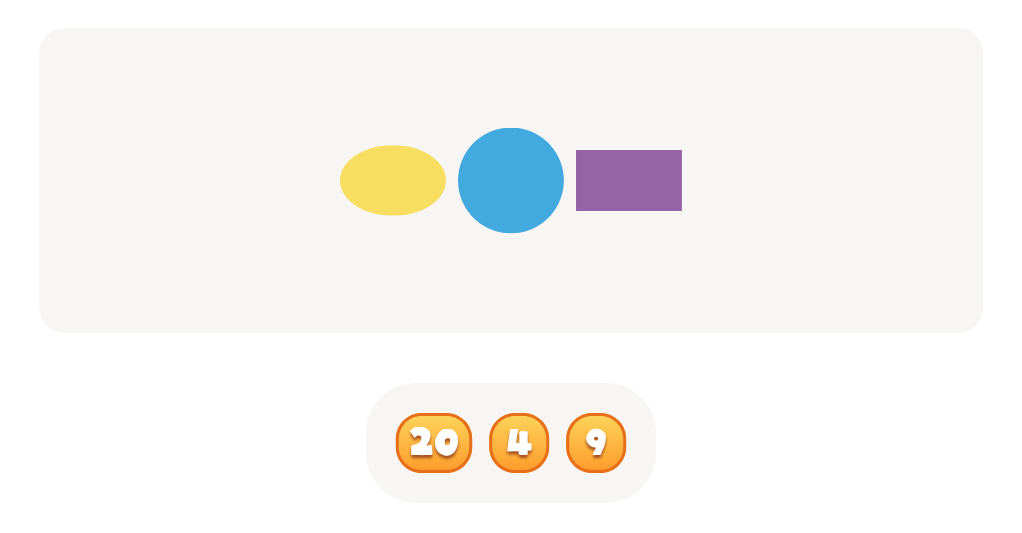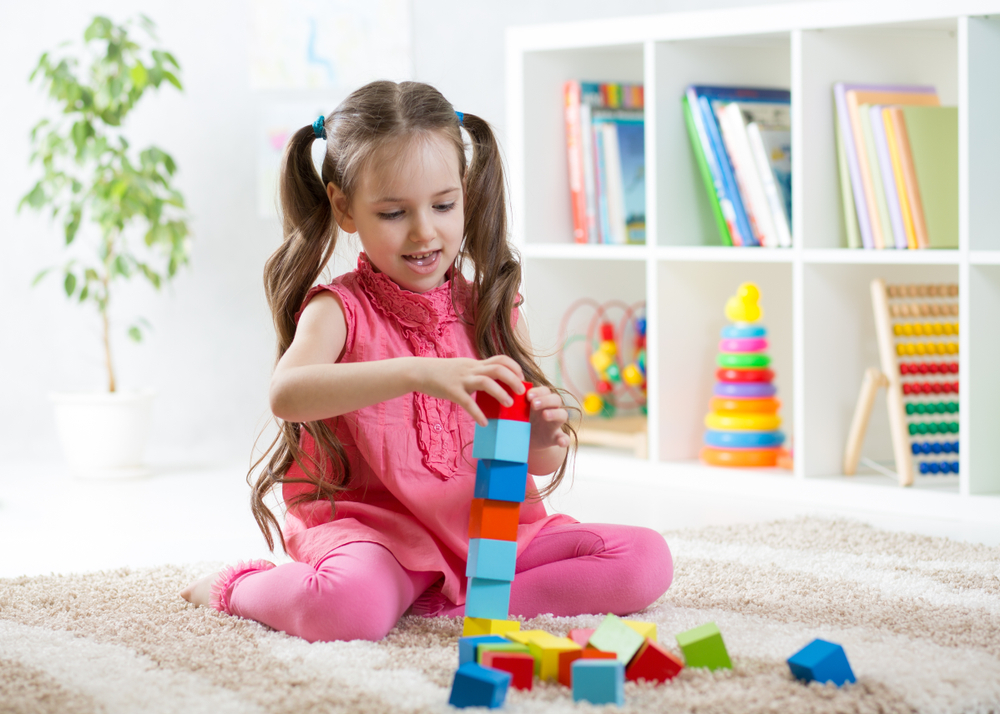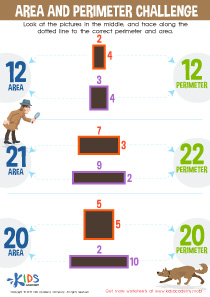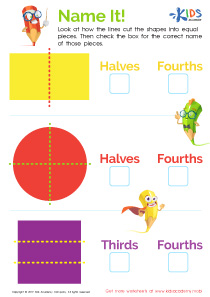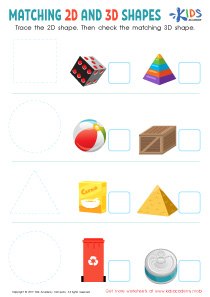Cognitive Development 2D Shapes Worksheets for Ages 3-7
10 filtered results
-
From - To
Discover our engaging "Cognitive Development 2D Shapes Worksheets" designed for children ages 3-7. These fun and educational printables help young learners recognize, name, and understand basic 2D shapes through interactive activities. By focusing on cognitive development, these worksheets support critical thinking, problem-solving, and spatial awareness. Perfect for early grade teachers and parents, each worksheet is crafted to boost memory and shape recognition, ensuring a strong mathematical foundation. Visit Kids Academy and make learning shapes an exciting adventure for your little ones, helping them to succeed in their early years of education!
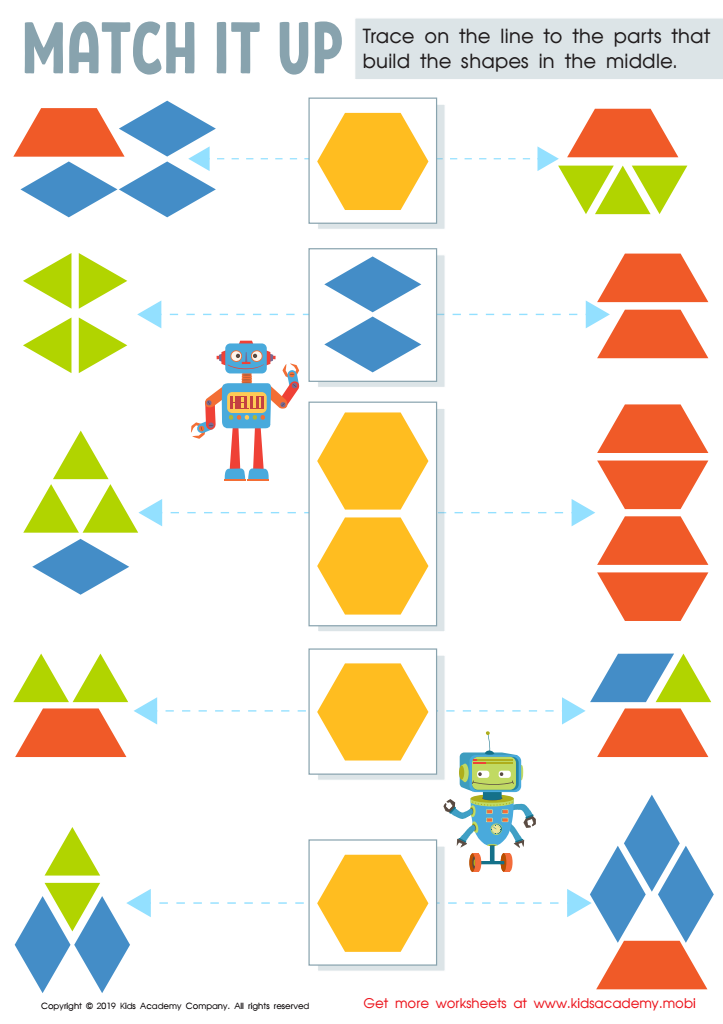

Match It up Worksheet
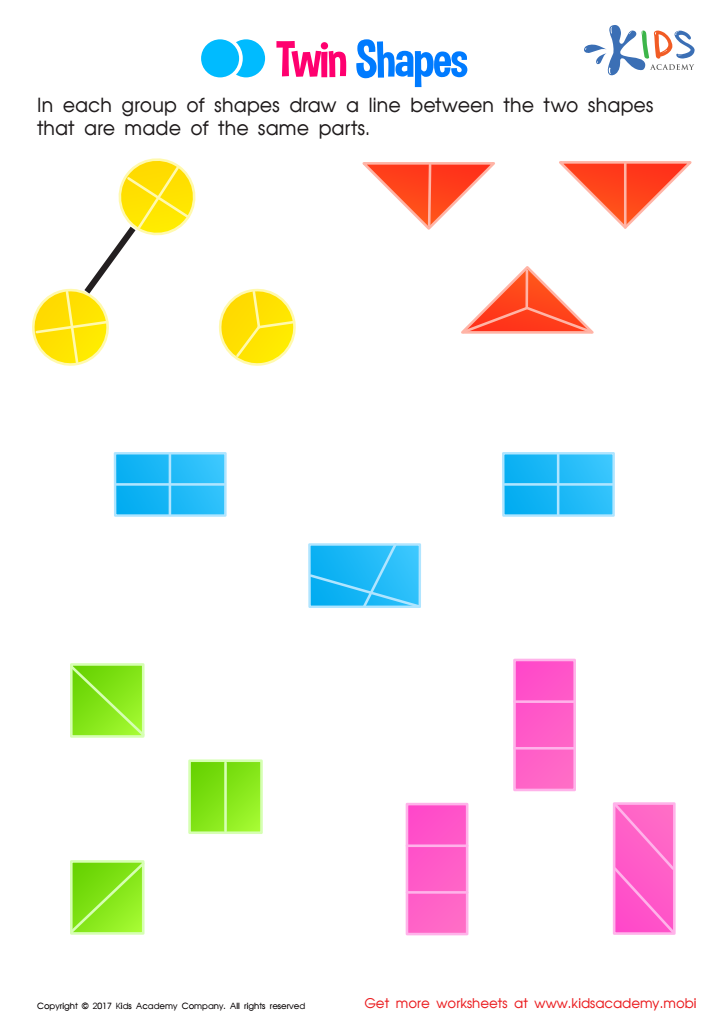

Twin Shapes Worksheet
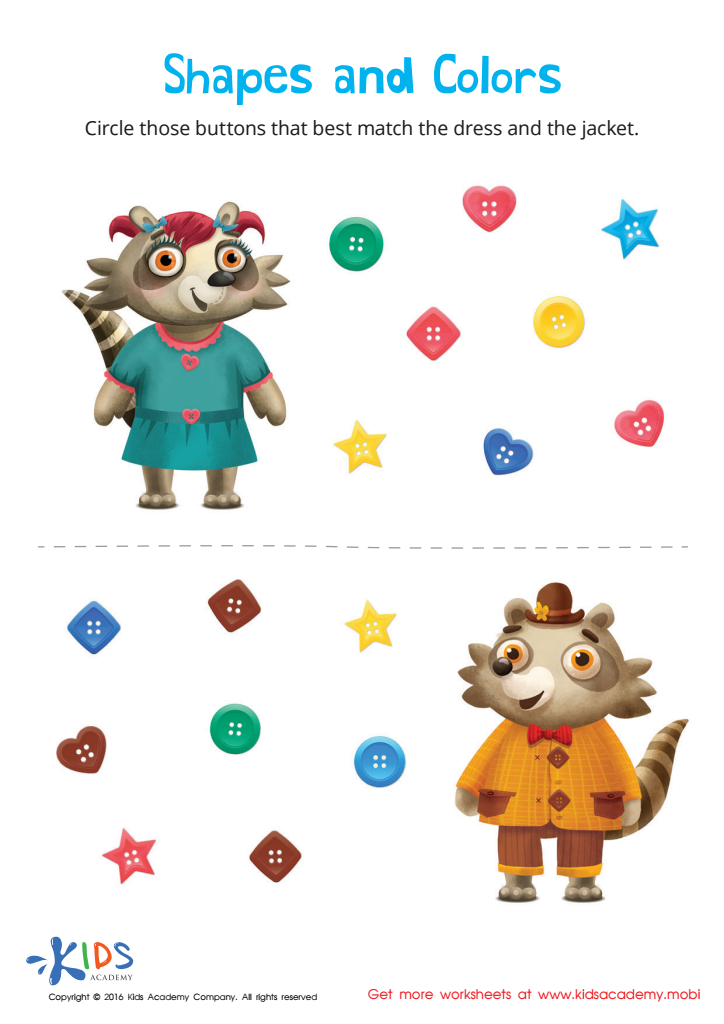

Matching: Shapes and Colors Worksheet
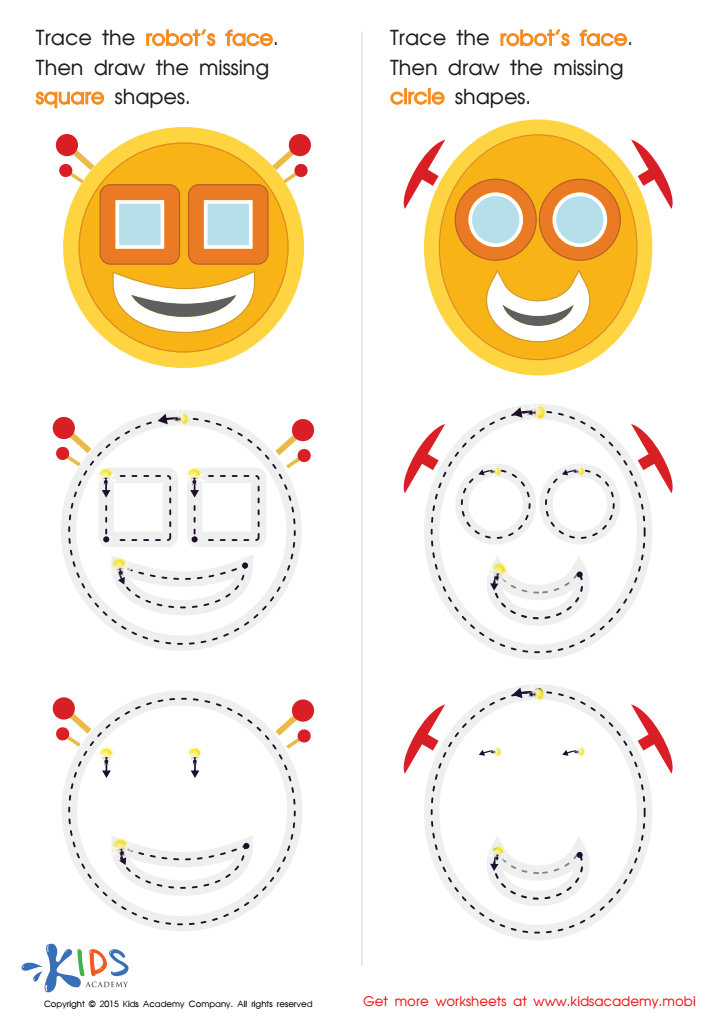

Practicing to Draw Circles And Squares Printable
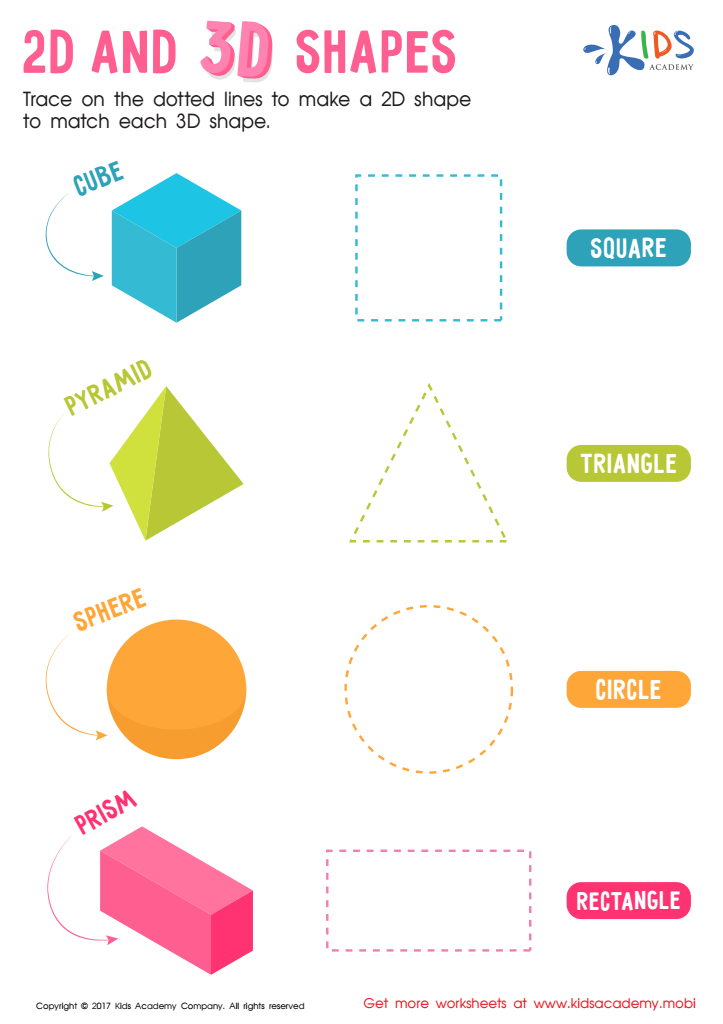

2D and 3D Shapes Worksheet
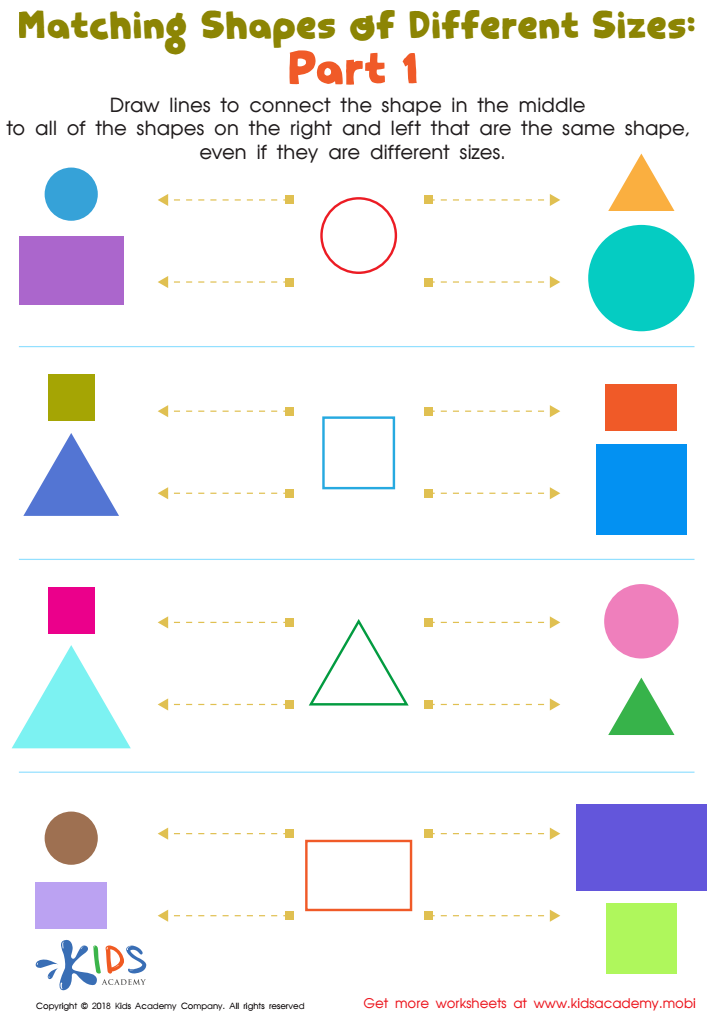

Geometry: part 1 Worksheet


Preschool Geometry Match Up Worksheet
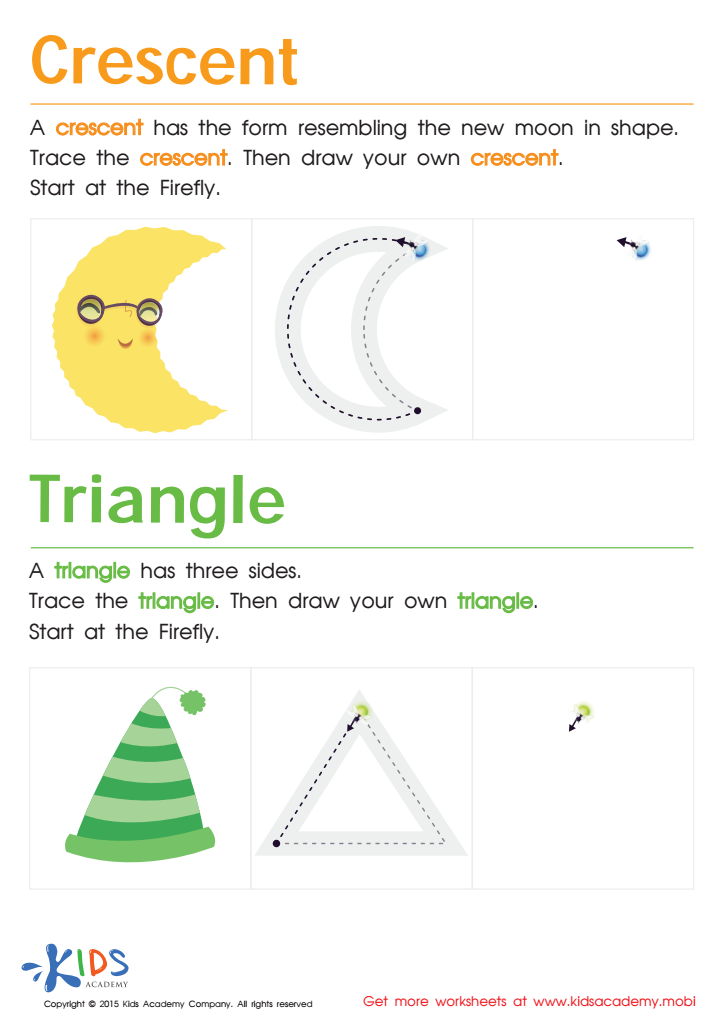

Learning to Draw Crescents And Triangles Worksheet
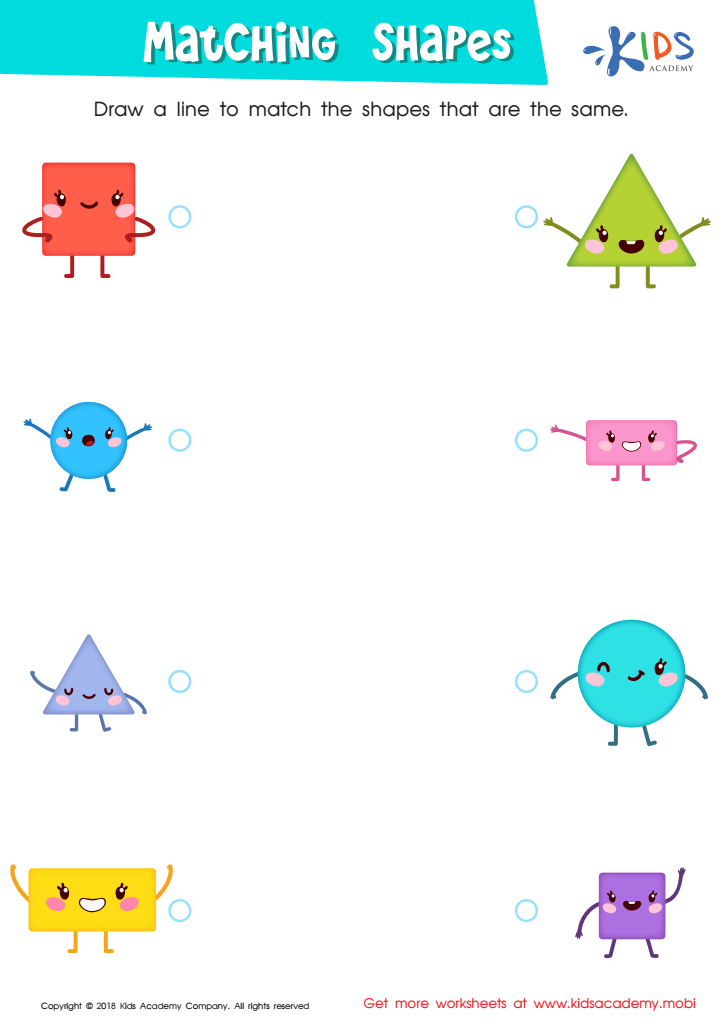

Matching Shapes Worksheet
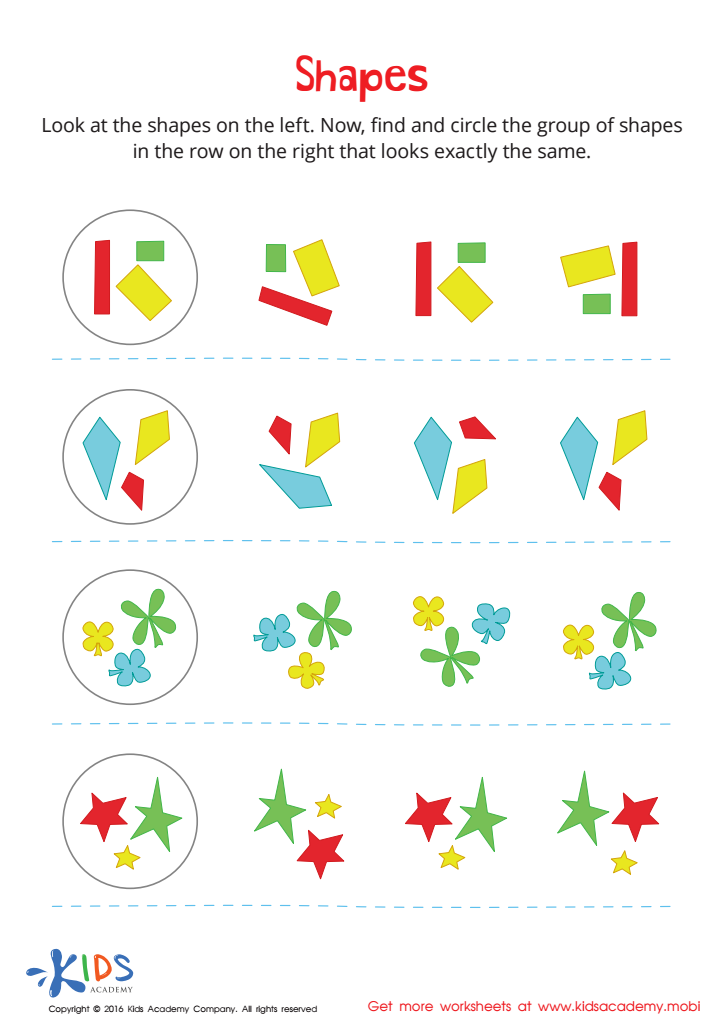

Shapes Worksheet
Parents and teachers should prioritize cognitive development with 2D shapes for children aged 3-7 because it sets a foundation for essential mathematical and spatial skills crucial for their academic growth and everyday problem-solving abilities. Understanding 2D shapes doesn't just help kids recognize circles, squares, triangles, and rectangles; it enhances their ability to sort, categorize, and compare objects—skills integral to logical thinking.
Learning about 2D shapes also aids in vocabulary improvement, as children learn to describe shapes using specific terms like "sides," "corners," and "edges." This knowledge further links to literacy as it enhances their descriptive and comprehension abilities. Introducing shapes early in life develops keen observational skills. Kids become more aware of their surroundings, noticing patterns and symmetry, which are fundamental in everyday situations and more complex subjects, such as geometry, later.
Furthermore, engaging with shapes can be very interactive and playful, contributing positively to children’s emotional and social development. Activities involving shapes—drawing, cutting, arranging—encourage fine motor skills and hand-eye coordination. Cooperative play with peers during such activities fosters social skills like sharing, cooperation, and communication. Thus, integrating 2D shape learning in early childhood education overall cultivates a well-rounded developmental experience equipping children with critical cognitive and social tools for their future.
 Assign to My Students
Assign to My Students
